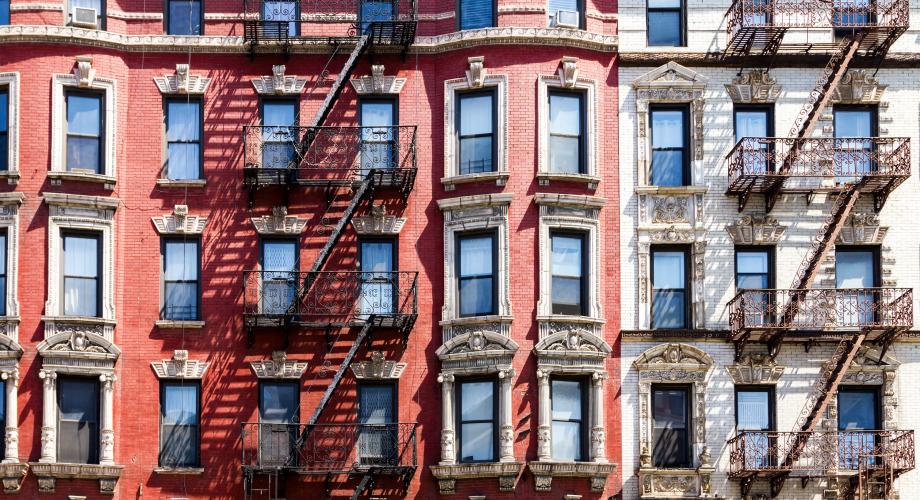Congress has called it a wrap for the holidays and 2015. But before heading out for their long winter break, lawmakers and the nation breathed a sigh of relief after the omnibus $1.8 trillion Fiscal Year 2016 federal government spending bill was approved.
Fortunately, the chances of another government shutdown were averted with the carefully cobbled together, and much deliberated over, legislation. President Obama promptly signed the bill before heading off for some R & R in Hawaii with his family.
The omnibus budget package holds numerous large victories for the apartment housing industry. For example, the tax portion of the legislation, known as tax extenders, would provide permanent or long-term extensions of provisions to promote investment in apartment properties, the production of low-income housing, and reduce the devastating impact that the Foreign Investment in Real Property Tax Act (FIRPTA) places on foreign investment in U.S. real estate. Additionally, the package would renew through 2016 provisions to promote energy efficiency in apartment buildings.
In another important victory for the industry, the EB-5 Immigrant Investor Program was reauthorized by Congress and leaves the program unchanged through September 2016.
The following tax provisions for which NAA/NMHC strongly advocated will impact the industry most:
- Bonus Depreciation: Bonus depreciation has enabled taxpayers to expense (as opposed to depreciate over a number of years) 50 percent of the cost of a qualifying investment (i.e. property with class lives or 20 years or less) in the year it was purchased. The tax extenders package renews this provision through 2019. For property placed in service during 2015-2017, the bonus depreciation percentage is 50 percent. The percentage then phases down to 40 percent in 2018 and 30 percent in 2019.
- Small Business Expensing: Under prior law, small businesses could have expensed in 2015, as opposed to depreciated over a period of years, up to $25,000 in new investments. This amount would have been reduced as aggregate investments exceeded $200,000. For property placed into service between 2010 and 2014, small businesses could expense up to $500,000 in qualifying investment subject to a phase out beginning at $2 million in investment. The tax extenders bill permanently renews and indexes for inflation these larger amounts for 2015 and beyond.
- FIRPTA: The tax extenders package permanently reduces barriers that FIRPTA imposes on foreign investment in U.S. real estate by increasing from 5 percent to 10 percent the ownership stake that a foreign investor may take in a U.S. publicly traded REIT without triggering FIRPTA. It also removes the tax penalty that FIRPTA imposes on foreign pension funds that invest in U.S. real estate.
- Minimum 9 percent Low-Income Housing Tax Credit (LIHTC): Due to low interest rates, the current 9 percent LIHTC is actually set at a 7.49 percent rate, reducing its value by nearly 17 percent. Accordingly, last year’s tax extenders package extended the minimum 9 percent rate for newly constructed non-federally subsidized buildings for which an LIHTC allocation was made prior to Jan. 1, 2015. In a victory for the apartment housing industry, the extenders package permanently renews the minimum 9 percent LIHTC. Unfortunately, it does not include a proposal long supported by NAA/NMHC that would establish a minimum 4 percent LIHTC for the acquisition of existing properties that are not federally subsidized.
- Deduction for Energy Efficient Commercial Buildings: Through 2014, the tax code provided for a $1.80 per square foot tax deduction for properties that exceed the efficiency standards set out in the 2001 American Society of Heating, Refrigerating and Air-Conditioning Engineers (ASHRAE) Standard 90.1 by 50 percent. The tax extenders package renews the provision through 2016 and, beginning in 2016, resets the ASHRAE standard to 2007 requirements.
- New Energy Efficient Home Credit: This tax credit allows some low-rise apartment properties (three stories or less) to qualify for a $2,000 per-unit tax credit for new residences that achieve a 50 percent energy savings for heating and cooling over the 2006 International Energy Conservation Code and supplements. The tax extenders package would renew the provision for 2015 and 2016.
- New Markets Tax Credit (NMTC): The NMTC provides a tax incentive for qualified equity investments in economically distressed areas that can be used for mixed-use projects. The law permitted $3.5 billion in new investments for 2014. The extenders package renews the NMTC through 2019.
Provided by NMHC as part of the NAA/NMHC Joint Legislative Program
